As fascinating as they may be, the subject of whether crows are dangerous is of growing interest to many. Within the avian world, crows have long been associated with intelligence and mystery. Yet, behind the mystique, are they a danger to humans, other birds, and animals? In this article, we delve into an exploration of the captivating behaviors of these species of crows, their possible resultant interactions with human and its attendant implications.
Can Crows Attack Humans?
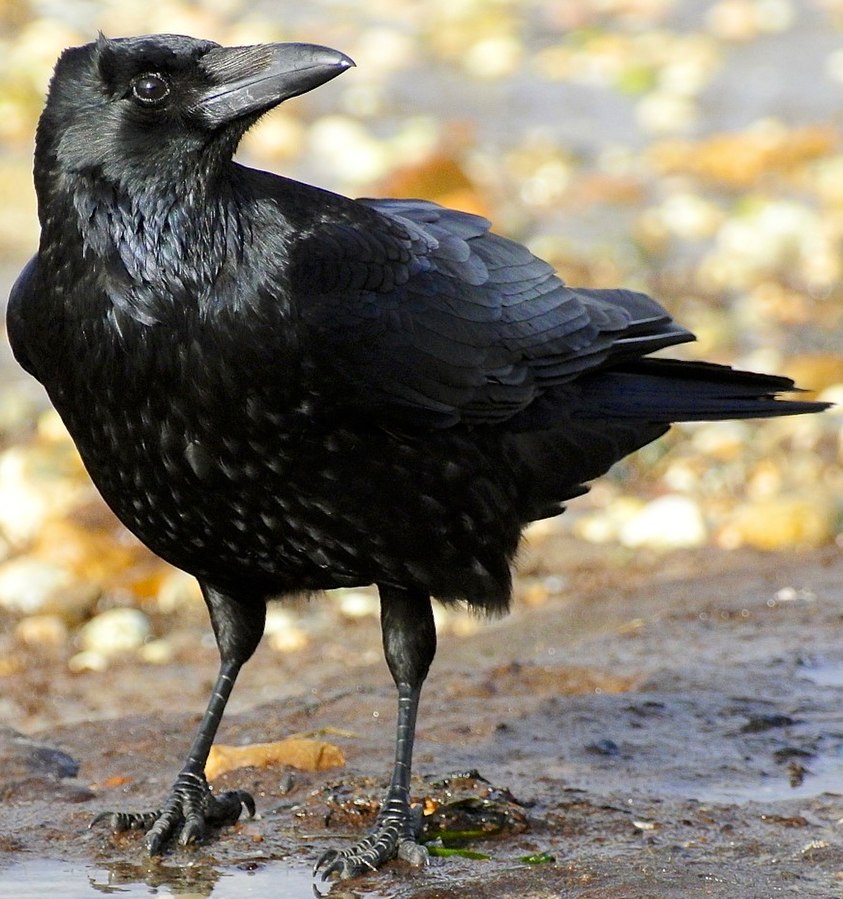
Indeed, the question of whether crows or more specifically, American crows, can attack humans often pops up. The answer isn’t that straightforward. While individual crows are known to become aggressive towards humans, an entire flock of crows or mob is less likely to attack unless provoked. These birds of the crow family generally keep their calm, yet situations such as being to close to their nests can instigate defensive behaviors.
Understanding Crows: Aggressive to Humans or Not?
Crows aren’t generally aggressive towards humans. However, during their nesting period, a single crow or a nesting pair might perceive humans as a threat and may attack to protect their chick and fledgling crow. In essence, crows don’t selectively incline to attack people but will do so primarily to secure their domain or ward off intruders.
The Consequences of Crow Attacks on Humans
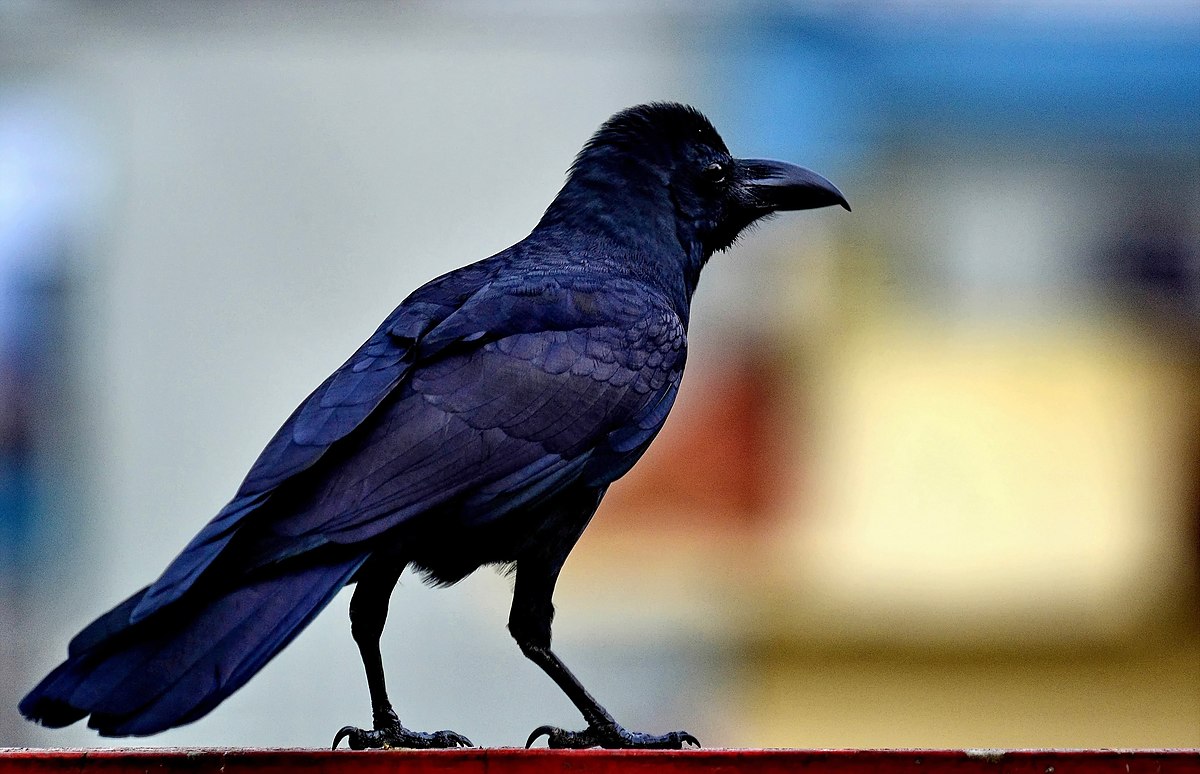
The results of crow attacks can vary. A crow would normally use its beak and claws to swoop and peck at perceived threats. While not fundamentally perilous, these attacks can cause scratches and mild injuries. However, instances of crows inflicting severe harm such as blinding an eye are extremely rare, reinforcing the notion that crows aren’t unavoidably dangerous to humans.
Preventing Crows from Attacking
Learning to coexist peacefully with our feathered friends can prevent crow attacks. Restrain from attracting a crow’s attention with shiny objects or by venturing too close to their nests, especially when they need guarding. Should a crow become aggressive, back away slowly to show that you’re not a threat. Some even suggest wearing a potentially dangerous mask to keep these intelligent birds at bay, as crows remember human faces associated with danger.
See Related: Can Crows Talk? Exploring Their Ability to Talk and Communicate
Do Crows Kill Humans?
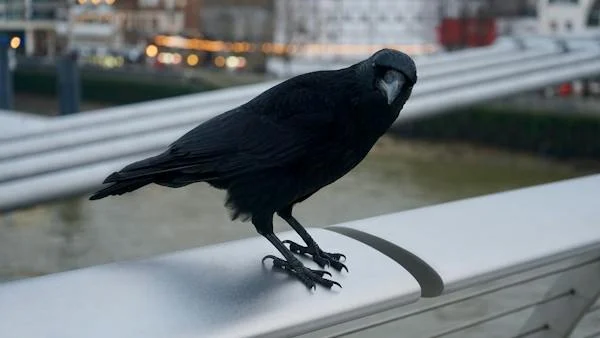
In terms of physical harm, stories centered around black crows killing humans are more into the realm of fiction than fact. Although a crow will attack if it feels threatened, the chances of it causing a deadly injury are extremely rare. In fact, research shows that crows are generally more beneficial than detrimental to their human neighbors, working as a clean-up crew for roadkill and discarded food.
The Truth about Crow Attacks
Scrutinizing the menacing imagery propagated sometimes, you’ll see that crows don’t deserve the reputation of being ruthless killers. A crow attack is usually nothing more than a warning. Evidential crow attacks involve the birds swooping down and pecking softly on someone’s head with their beak. While certainly startling, such attacks are far from lethal.
Cases of Black Crows Killing Humans: Fact or Fiction?

Are stories of crows killing humans fact or fiction? Most of them belong to the fiction category. There are no verified instances of crows directly causing human fatalities. The probability that crows kill humans is ephemeral. Normally, a crow will merely flutter close, squawk loudly, and peck in a governing attempt to drive intruders away, but they will rarely cause severe damage.
Why Would a Crow Attack a Human?
There are several reasons a crow might attack a human. Most commonly, it’s to protect a nest or a fledgling crow. During the breeding and nesting season, crows often become more hostile, so it is advisable to steer clear of the nests. Beyond this, crows may also act aggressively if they associate certain humans with danger due to their unique ability to recognize human faces.
Are Crows Dangerous to Other Birds and Animals?
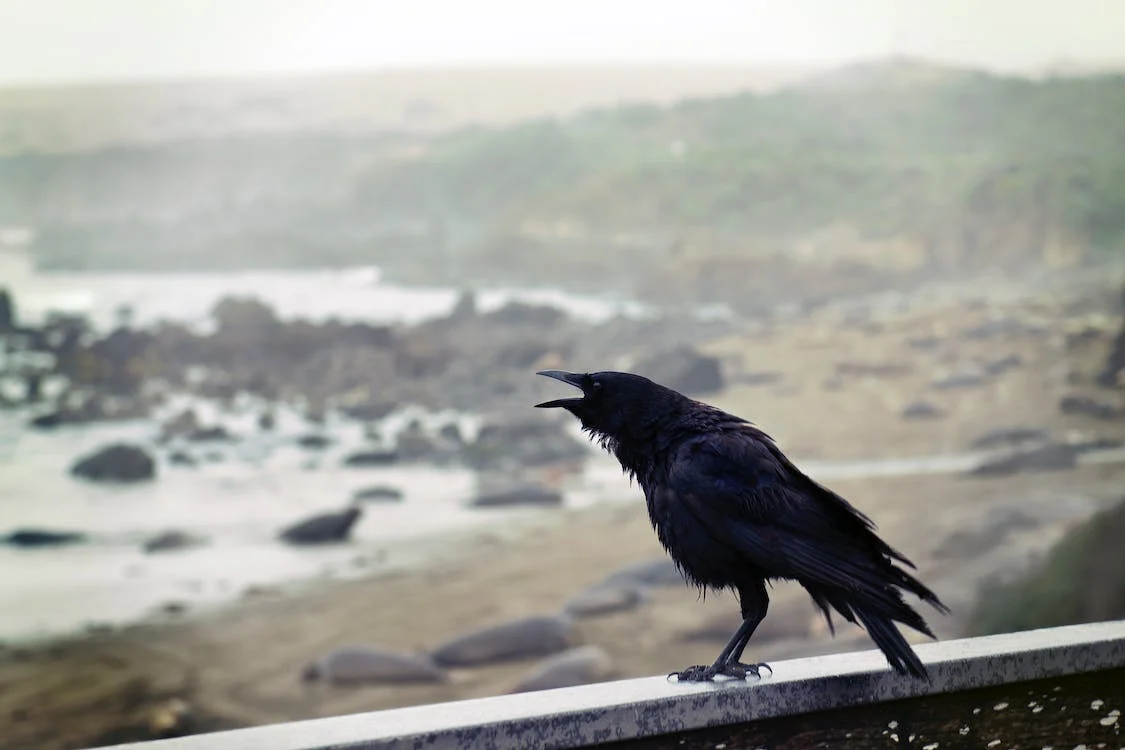
Obscuring the chiseled image of crows being dangerous solely to humans, crows and other corvids also fare aggressively towards other birds and animals. Crows as predators can be dangerous to other smaller bird species, as well as small mammals.
Crows as Predators: Are They Aggressive to Other Birds?
While they are omnivorous by nature, crows are known to showcase predatory behavior towards other birds, especially during the nesting season. Sousliks, sparrows and even other baby crows are among the prey they hunt. Their aggressiveness towards other bird species increases when food is scarce.
Crows and Owls: An Example of Inter-Species Conflict
Interactions between crows and owls provide a keen illustration of inter-species conflict. The two are natural enemies, with crows often seen mobbing and harassing owls. This attack strategy, called “mobbing”, is a wide-spread bird response to predators. It’s not just owls they problematize, Crows also dive-bomb hawks and other birds of prey considered as threats.
Do Crows Dive-bomb Hawks and Other Birds of Prey?
Yes, they do. Quite famously, crows are known for their brave confrontations with even larger birds of prey. A common strategy is to dive-bomb a hawk or an owl mid-flight or when they’re perched. The aim is always to intimidate and ward them off. Ironically, the crow’s ability to confront larger predators – often viewed as an aggressive act – is a protective maneuver that ensures their safety and survival.
Nesting Behaviors of Crows: Implications for Human Interaction
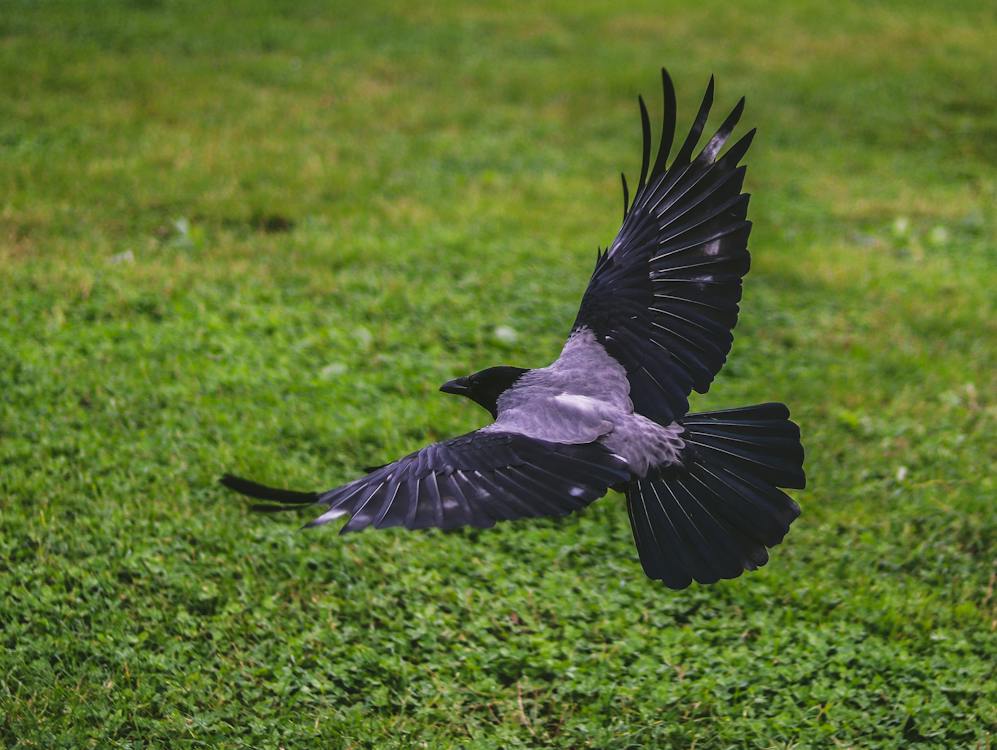
Peering into the nesting habits of these feathered creatures elucidates the root of many human-crow incongruities. Crows are highly protective of their nests and will guard them tenaciously, deterring all perceived threats, which could be any animal, bird, or even a human. This explains why crows dive-bomb or show increased aggression during their nesting season.
Fascinating Behaviors: Why Crows are among the Most Intelligent Birds

Crows’ intelligence and complex social structures make them intriguing. Their ability to recognize human faces, use tools and exhibit unique, coordinated behaviors exemplifies their status as one of the most intelligent birds. They maintain strong communal bonds, often roosting in large flocks and employing cooperative breeding strategies.
The Unique Capabilities of Crows: Use of Tools and Recognition of Human Faces
One of the intriguing abilities of crows is their unique use of tools. They’ve been observed utilizing twigs, feathers, and even human-made objects to gather food. Additionally, studies show that crows can recognize human faces, a trait unique among most bird species. They’ve been known to remember individuals who’ve treated them poorly and, in response, display aggressive behavior.
How Crows Remember and Respond to Threats
One of the mysteries surrounding these corvid birds can be seen in how crows remember threats. In fact, they’ve exhibited the ability to recognize and remember individual human faces and show a strong memory for human faces linked with stressful situations.
The Social Structure of Crows: From Mob Behavior to Territoriality
Crows’ social structure is multifaceted, extending from mob behavior to territoriality. Mobbing behavior usually occurs in response to a perceived predator and involves a group of crows banding together to drive off the threat. For someone witnessing this event, it might appear that the crows are attacking maliciously. However, it is simply an exhibition of their protective nature.
Whether crows are dangerous to humans or not is a topic dependent on perspective. As with many wildlife species, unprovoked human aggression is an anomaly. Understanding their behavior patterns and habitats can foster a harmonious coexistence with crows, reframing our perception of these intelligent birds.